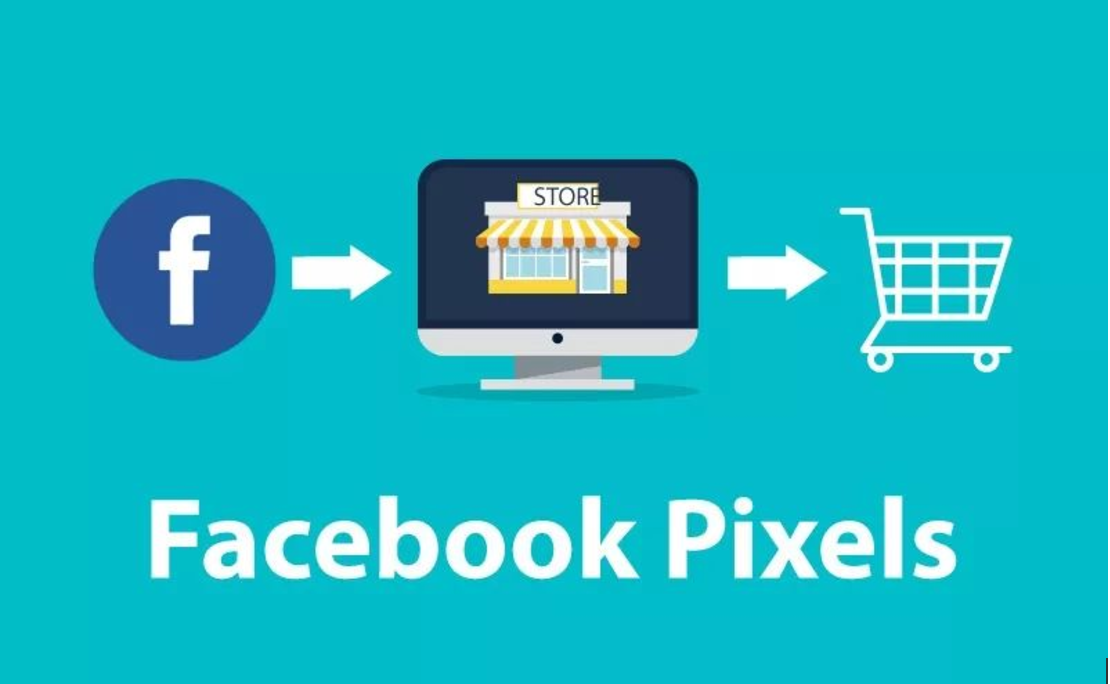
Book a Free Consultation Now
Would you like to know more about this topic?
Contact us on WhatsApp and get a free consultation from our experts
Contact on WhatsApp NowFacebook conversion
Facebook conversion refers to any valuable action a user completes after interacting with an ad, such as a purchase, lead submission, or registration. These actions represent real business outcomes and help advertisers understand whether campaigns are delivering measurable value. By choosing to Track conversions on Facebook, businesses gain clarity on how advertising efforts translate into meaningful results across websites, apps, and offline channels.
Facebook conversions are closely linked to conversion events, custom conversions, ad performance measurement, campaign optimization, and return on ad spend (ROAS), all of which are essential for building profitable advertising strategies. Through Nofal Seo, businesses implement structured conversion frameworks that align Facebook Ads reporting, data-driven optimization, and scalable growth strategies to ensure every conversion is tracked, analyzed, and optimized for long-term performance.
Key elements that define Facebook conversions include:
- Conversion events represent actions with direct business value.
- Accurate conversion tracking improves ad optimization and delivery.
- Conversion data connects ad spend with revenue-focused outcomes.
- Well-defined conversions support smarter scaling decisions.
- Conversion insights guide long-term advertising strategy.
- Reliable tracking forms the backbone of performance marketing.
How does Facebook conversion tracking work?
Facebook conversion tracking works by collecting user action data and matching it with ad interactions to determine which campaigns drive real results. When a user clicks or views an ad and later completes a defined action, Facebook attributes that action based on timing, behavior signals, and attribution rules. This system allows advertisers to understand performance beyond impressions and clicks. By choosing to Track conversions on Facebook, businesses can clearly connect advertising exposure with measurable outcomes across websites, apps, and offline touchpoints.
The tracking process relies on Meta Pixel, Conversions API, server-side tracking, event matching, and attribution windows, which together improve accuracy and reduce data loss. Through Nofal Seo, advertisers implement reliable setups that combine browser-based tracking, privacy-safe measurement, and conversion optimization to ensure high-quality data, stronger campaign insights, and scalable performance across Facebook Ads.
Key components of how conversion tracking works include:
-
Pixel-based tracking captures user actions directly from the website.
-
Server-side events improve data reliability when browser tracking is limited.
-
Event matching connects actions to users using multiple signals.
-
Attribution rules determine how conversions are credited to ads.
-
Modeled data fills gaps caused by privacy restrictions.
-
Proper setup improves optimization and reporting accuracy.
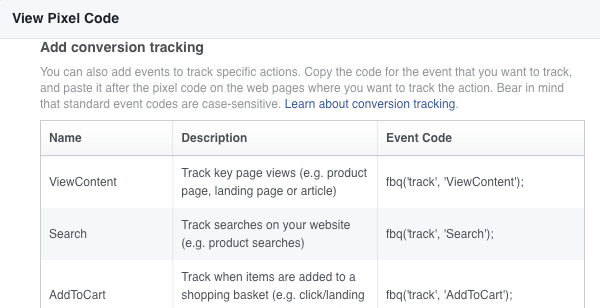
Can Facebook activity be tracked?
Facebook activity can be tracked by monitoring how users interact with ads, websites, and apps through defined events and engagement signals. These activities include page views, clicks, purchases, form submissions, and other actions that indicate user intent. Tracking this activity helps advertisers understand behavior patterns and how users move through the customer journey after seeing an ad. When businesses Track conversions on Facebook, they gain visibility into which interactions contribute to real business outcomes.
Activity tracking depends on user engagement data, website interaction tracking, app events, cross-device measurement, and privacy-compliant data collection, all of which help advertisers analyze performance responsibly. By focusing on event-based tracking, behavior analysis, and audience insights, businesses can refine targeting, personalize messaging, and improve campaign efficiency while respecting user privacy and platform policies.
Key aspects of Facebook activity tracking include:
-
Engagement signals reveal how users interact with ads and content.
-
Website and app events show post-click and post-view behavior.
-
Cross-device tracking connects activity across multiple platforms.
-
Aggregated data protects user privacy while enabling insights.
-
Activity tracking supports better audience segmentation.
-
Behavioral insights guide optimization and targeting decisions.
How do you track conversions on Facebook?
Tracking conversions on Facebook starts with defining the actions you want to measure (purchases, leads, registrations, calls, etc.) and then setting up the tools that send those actions back to Meta for attribution and optimization. The goal is to connect ad exposure with real outcomes so you can measure performance accurately and improve results over time. When you Track conversions on Facebook, you give the algorithm clear signals about what “success” means for your business, which makes delivery smarter and reporting more reliable.
In practice, conversion tracking depends on Meta Pixel setup, Events Manager, custom conversions, standard events, and Conversions API, which together help reduce tracking gaps and improve measurement accuracy. At Nofal Seo, we implement a structured tracking framework that aligns conversion optimization, event prioritization, domain verification, and Aggregated Event Measurement to ensure your campaigns are measured correctly and optimized toward the actions that matter most.
Step-by-step setup to track conversions includes:
-
Open Meta Events Manager, select your Pixel (or create one), and confirm the business account has access.
-
Install the Pixel on your website (via GTM, partner integration مثل Shopify/WooCommerce، أو manual code) and confirm it fires on all pages.
-
Enable and configure standard events (Purchase, Lead, CompleteRegistration, AddToCart) using Event Setup Tool or GTM, and verify each event triggers on the correct page/action.
-
Create custom conversions for key actions (e.g., “Thank-you page reached” or “Lead form submitted”) and assign them a clear conversion category.
-
Verify your domain inside Business Settings and prioritize events under Aggregated Event Measurement to ensure tracking works under privacy restrictions.
-
Test everything using Test Events and Meta Pixel Helper, then review event quality and match rate to catch missing parameters.
-
Set your campaign objective to Sales/Leads, choose the correct conversion event at the ad set level, and ensure optimization is set to that event.
-
Monitor results in Ads Manager and validate consistency by comparing Facebook events with website backend/CRM records.
How to find conversion rate on Facebook?
Finding conversion rate on Facebook means calculating how many desired actions happened compared to the number of people who clicked or visited your landing page from ads. Conversion rate is one of the most important indicators because it tells you whether the traffic you’re paying for is actually converting into leads or sales. When you Track conversions on Facebook, you can view conversion-related metrics directly in Ads Manager and evaluate performance across campaigns, ad sets, and ads.
To calculate and interpret conversion rate properly, you’ll typically rely on Ads Manager reporting, custom columns, website conversion rate, cost per conversion, and ROAS, while also validating with analytics and backend data. At Nofal Seo, we build reporting views that combine campaign performance metrics, funnel conversion rates, and event-level reporting so you can measure conversion rate accurately and identify exactly where performance is leaking.
Detailed steps to find and calculate conversion rate include:
-
Open Facebook Ads Manager and select the campaign, ad set, or ad level you want to analyze.
-
Click Columns and choose Performance and Clicks, or create Custom Columns that include conversion-related metrics.
-
Add metrics such as Conversions, Results, Landing Page Views, Link Clicks, and Cost per Result to your report.
-
Calculate conversion rate using the formula: (Conversions ÷ Landing Page Views) × 100 for the most accurate website-based rate.
-
If landing page views are unavailable, calculate (Conversions ÷ Link Clicks) × 100 as an alternative benchmark.
-
Break down performance by device, placement, age, and location to identify high- and low-performing segments.
-
Compare Facebook-reported conversions with website or CRM data to confirm tracking accuracy.
-
Monitor conversion rate trends over time to evaluate the impact of creative, audience, or landing page changes.
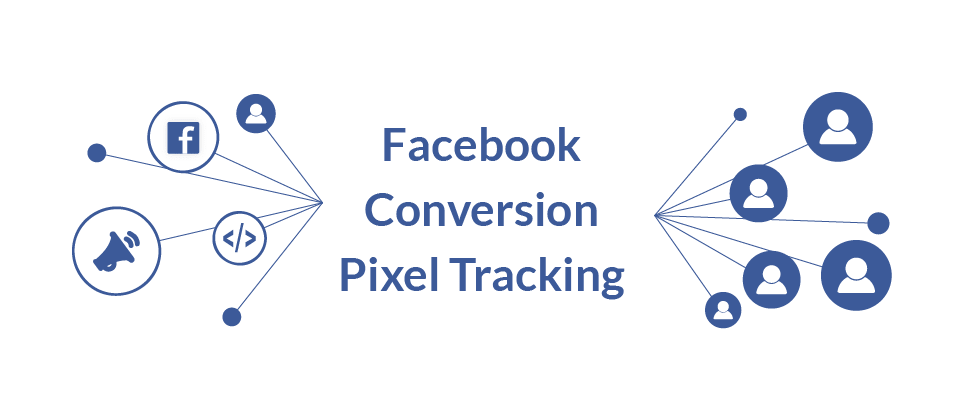
Why Facebook ads conversion tracking is crucial
Facebook ads conversion tracking is crucial because it allows advertisers to measure real business outcomes instead of relying on surface-level metrics like clicks or impressions. Without conversion tracking, it is impossible to know whether ad spend is driving leads, sales, or meaningful actions. Accurate tracking helps advertisers understand which campaigns, audiences, and creatives are actually working. When businesses Track conversions on Facebook, they gain clarity on performance, improve decision-making, and align advertising efforts with revenue-focused goals.
The importance of conversion tracking becomes even clearer when campaigns scale. Using performance marketing insights, conversion-based optimization, return on ad spend (ROAS), data-driven advertising, and campaign attribution, advertisers can identify profitable strategies and eliminate wasted budget. Conversion tracking transforms Facebook Ads from an experimental channel into a predictable growth engine by ensuring every optimization decision is based on measurable results rather than assumptions.
Key reasons conversion tracking is essential include:
-
It connects advertising spend directly to business outcomes such as sales or leads.
-
It enables Facebook’s algorithm to optimize delivery toward high-intent users.
-
It reveals which campaigns and audiences generate the highest value.
-
It improves budget allocation by prioritizing high-performing ads.
-
It supports accurate reporting and long-term performance analysis.
-
It allows scalable growth based on reliable conversion data.
How to set up Conversion tracking
Setting up conversion tracking on Facebook involves defining the actions you want to measure and configuring the tools that send those actions back to Meta for attribution and optimization. This setup ensures Facebook understands which user behaviors represent success for your business. A correct configuration is critical because poorly defined or missing events lead to inaccurate reporting and weak optimization. When advertisers Track conversions on Facebook, they give the platform the signals it needs to deliver ads to users most likely to convert.
A professional setup relies on Meta Pixel installation, Events Manager configuration, standard events, custom conversions, and domain verification to ensure reliable tracking under modern privacy rules. Through Nofal Seo, businesses implement structured conversion setups that combine conversion optimization, Aggregated Event Measurement, and server-side readiness to protect data accuracy and maximize campaign performance from day one.
Step-by-step process to set up conversion tracking includes:
-
Create or select your Meta Pixel inside Events Manager and assign it to the correct ad account.
-
Install the Pixel on your website using a partner integration, tag manager, or manual code placement.
-
Configure standard events such as Purchase, Lead, Complete Registration, or Add to Cart on the correct pages or actions.
-
Create custom conversions for key goals that are not covered by standard events.
-
Verify your website domain inside Business Settings to comply with tracking and privacy requirements.
-
Prioritize conversion events under Aggregated Event Measurement to ensure accurate reporting.
-
Test events using Test Events and diagnostic tools to confirm proper firing and data quality.
-
Select the correct conversion event at the ad set level and optimize campaigns for that event.
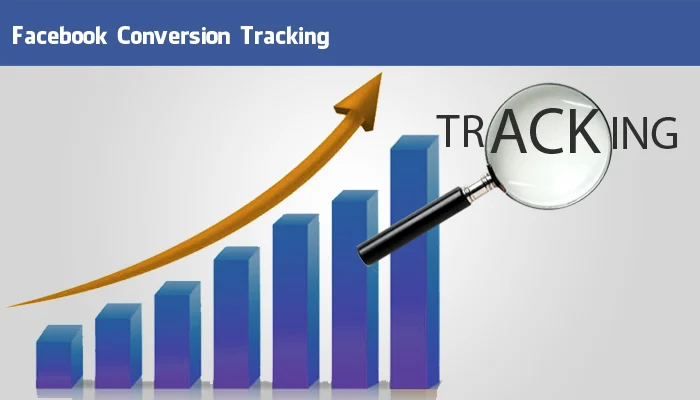
Facebook Offline Conversion Tracking
Facebook offline conversion tracking allows businesses to measure actions that happen outside the website or app, such as in-store purchases, phone sales, or deals closed by a sales team. This type of tracking connects offline customer actions back to Facebook ads, giving advertisers a complete view of performance across online and offline channels. When advertisers Track conversions on Facebook, offline tracking ensures that real-world results are included in reporting and optimization, not just digital interactions.
Offline tracking relies on offline event sets, CRM data integration, customer data matching, offline attribution, and event uploads, all of which help bridge the gap between advertising and real-life outcomes. By combining online and offline signals, businesses can understand the full customer journey, improve attribution accuracy, and optimize campaigns based on total business impact rather than partial data.
Key elements of Facebook offline conversion tracking include:
-
Offline event sets store real-world actions such as purchases or qualified leads.
-
Customer data is matched to Facebook users using privacy-safe identifiers.
-
Offline events can be uploaded manually or sent automatically from systems.
-
Attribution connects offline actions to previous ad interactions.
-
Offline tracking improves reporting accuracy for omnichannel businesses.
-
Combined data supports better optimization and budget allocation.
Benefits of using Meta pixel and Conversion API together
Using Meta Pixel and Conversions API together creates a more resilient and accurate conversion tracking system by combining browser-based and server-side data. Pixel tracking captures user actions directly from the browser, while Conversions API sends events from the server, reducing data loss caused by browser restrictions or ad blockers. When advertisers Track conversions on Facebook, this hybrid approach ensures stronger data coverage and more reliable attribution across campaigns.
The combined setup enhances server-side tracking, event deduplication, conversion accuracy, data reliability, and privacy-compliant measurement, making it essential for modern performance advertising. By leveraging both tools together, advertisers gain better optimization signals, more consistent reporting, and improved campaign learning, especially in environments affected by privacy changes.
Key benefits of combining Meta Pixel and Conversions API include:
-
Reduced data loss from browser limitations and tracking restrictions.
-
Improved event accuracy through deduplication and matching.
-
Stronger optimization signals for Facebook’s delivery system.
-
More consistent conversion reporting across devices and platforms.
-
Better compliance with privacy and data protection standards.
-
Higher confidence in performance analysis and scaling decisions.
How to track conversions in Facebook ads with Conversions API
Tracking conversions in Facebook ads with the Conversions API involves sending conversion events directly from your server to Meta, ensuring more reliable data collection than browser-only tracking. This method captures actions even when cookies are blocked or browsers limit tracking, providing a stronger signal for attribution and optimization. When advertisers Track conversions on Facebook, using the Conversions API helps maintain measurement accuracy and continuity across devices and environments.
Implementing Conversions API requires server-side event setup, event mapping, deduplication configuration, secure data transmission, and Events Manager validation to ensure events are received and matched correctly. This approach strengthens optimization by delivering higher-quality conversion signals and improves reporting consistency, especially for purchase-heavy or privacy-sensitive funnels.
Key steps to track conversions using Conversions API include:
-
Create or select a Conversions API data source in Meta Events Manager.
-
Choose an implementation method (direct server integration, partner platform, or tag manager).
-
Map server events to Facebook standard events (e.g., Purchase, Lead).
-
Configure event IDs to enable proper deduplication with Pixel events.
-
Send required parameters such as event time, event name, and user data (hashed).
-
Test server events using Test Events to confirm successful delivery.
-
Monitor event quality and match rate to ensure reliable optimization signals.
-
Assign the correct conversion event to campaigns and ad sets for optimization.
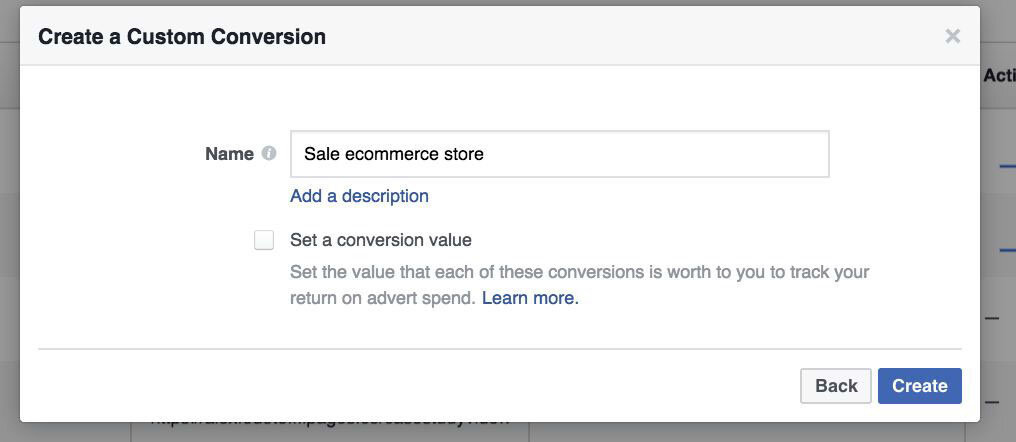
How to use Conversion API for CRM to optimize Facebook ads
Using Conversion API for CRM connects your customer relationship management system directly to Facebook, allowing offline and post-lead actions to influence ad optimization. This setup enables advertisers to track actions like qualified leads, closed deals, or purchases that happen after the initial interaction. When businesses Track conversions on Facebook, CRM-based tracking ensures that high-value outcomes—not just form fills—are used to guide campaign delivery.
CRM integration depends on CRM-to-Facebook data sync, offline conversion events, lead status updates, lifecycle stage tracking, and value-based optimization, all of which help refine targeting and bidding. By sending enriched conversion data back to Meta, advertisers can optimize campaigns toward users who generate real revenue, not just surface engagement.
Key steps to use Conversion API with CRM include:
-
Identify CRM events that represent meaningful outcomes (qualified lead, sale, renewal).
-
Map CRM actions to Facebook standard or custom events.
-
Send events server-side through Conversions API with proper user identifiers.
-
Include value and currency parameters to support value-based optimization.
-
Validate event delivery and matching inside Events Manager.
-
Use CRM-based events as optimization goals at the ad set level.
-
Monitor performance changes as campaigns optimize toward higher-quality outcomes.
-
Continuously refine event definitions to align ads with revenue-driving actions.
How to track Facebook ad conversions in Google Analytics 4 (GA4)
Tracking Facebook ad conversions in Google Analytics 4 allows advertisers to analyze Facebook-driven performance alongside other traffic sources in a unified analytics environment. This approach helps businesses understand how Facebook ads contribute to conversions across the full customer journey, including assisted conversions and cross-channel impact. When advertisers Track conversions on Facebook, integrating GA4 provides additional context for attribution and performance analysis beyond platform-level reporting.
GA4 tracking relies on UTM parameters, event-based measurement, cross-channel attribution, conversion configuration, and traffic source reporting to align Facebook data with analytics insights. By connecting ad traffic to GA4 events, businesses can compare Facebook performance against other channels and gain a clearer understanding of user behavior after ad interaction.
Key steps to track Facebook conversions in GA4 include:
-
Add consistent UTM parameters to all Facebook ad URLs.
-
Define conversion events inside GA4 Events based on key actions.
-
Mark relevant GA4 events as Conversions for reporting.
-
Use Traffic Acquisition and User Acquisition reports to analyze Facebook performance.
-
Compare Facebook-driven conversions with other paid and organic channels.
-
Review attribution paths to understand assisted and delayed conversions.
-
Validate data consistency between GA4 and Facebook Ads Manager.
-
Use GA4 insights to refine targeting, creatives, and landing pages.
Benefits of using LeadsBridge for Facebook ad conversion tracking
Using LeadsBridge for Facebook ad conversion tracking simplifies data integration between Facebook Ads and multiple platforms such as CRMs, email tools, and analytics systems. This solution helps automate data flow and reduce manual tracking errors, ensuring conversion data is consistently sent to Meta for optimization. When advertisers Track conversions on Facebook, LeadsBridge enables seamless connectivity that supports accurate measurement across complex marketing stacks.
LeadsBridge enhances CRM integration, offline conversion syncing, server-side tracking, automation workflows, and data consistency, making it especially valuable for lead-based and sales-driven businesses. By centralizing data connections, advertisers can optimize campaigns using higher-quality conversion signals and reduce technical overhead associated with custom integrations.
Key benefits of using LeadsBridge include:
-
Automated syncing between Facebook Ads and CRM platforms.
-
Improved offline and post-lead conversion tracking.
-
Reduced dependency on manual CSV uploads.
-
Better data accuracy through real-time integrations.
-
Support for server-side and privacy-compliant tracking.
-
Faster implementation compared to custom-built solutions.
-
Scalable tracking for complex funnels and multi-system setups.
-
Cleaner optimization signals for improved campaign performance.
Do you need a consultation about this topic?
Contact on WhatsApp